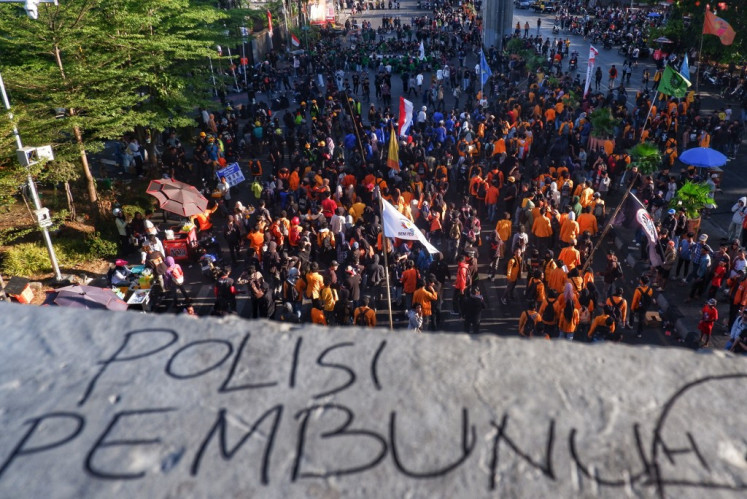Popular Reads
Top Results
Can't find what you're looking for?
View all search resultsPopular Reads
Top Results
Can't find what you're looking for?
View all search resultsIndonesia experiencing slow development in HIV/AIDS treatment
With shortages of imported medicines and a general lack of knowledge among the affected, only about 10 percent of the 200,000 Indonesians living with HIV/AIDS receive the recommended anti-retroviral (ARV) therapy, an official said Friday
Change text size
Gift Premium Articles
to Anyone
With shortages of imported medicines and a general lack of knowledge among the affected, only about 10 percent of the 200,000 Indonesians living with HIV/AIDS receive the recommended anti-retroviral (ARV) therapy, an official said Friday.
Chairman of the Association of Indonesian Physicians Concerned about HIV/AIDS and coordinator of the HIV/AIDS clinic at the Cipto Mangunkusumo General Hospital (RSCM), Samsuridjal Djauzi, said in Jakarta on Friday only some 15,000 people with HIV/AIDS in Indonesia were currently receiving ARV therapy.
"Most of these people don't even know of their status (as people living with HIV/AIDS), while others live too far from hospitals to receive treatment," he told reporters on the sidelines of the two-day "2008 Clinical Research Meeting on HIV/AIDS".
The meeting, which started Friday at RSCM in Central Jakarta, is being attended by experts and physicians from hospitals, community health centers and penitentiaries providing HIV/AIDS treatment across the country.
A lack of certain drugs, especially imported ones, has further hampered treatment, according to speakers.
Samsuridjal said most of the 15,000 people being treated were receiving the first-line ARV course, which has been funded by the government for the last few years. The course consists of AZT, d4T, 3TC, Nevirapine and Efavirenz, which is the only drug of the four that is imported.
He said while the number of those treated had steadily increased, funds allocated by the government had not kept up with demand, resulting in a lack of supply of the imported Efavirenz in Jakarta's hospitals over the last month.
He said such restrictions would result in the ARV therapy being discontinued, which could prompt HIV resistance to first-line drugs.
"If the HIV becomes resistant, then we have to shift to the second-line ARV therapy, which is far more expensive and has more severe side-effects," he said, adding that, currently, only 5 percent of Indonesians living with HIV/AIDS were treated with the second-line option, which is typically supplied and funded by donor institutions.
He said the percentage use of second-line ARV therapies would rise yearly following a global increase in HIV resistance to the first-line treatment, and that adherence to the directions for ARV drug usage was crucial, describing it as "the key to the success of HIV/AIDS therapy".
"How can we tell patients to adhere to the drugs' directions if we can't always make the drugs available to them?" he said.
Robert Kosasih, a doctor at Dharmais Cancer Hospital, said among the factors influencing patients' commitment to the rules of anti-retroviral drug courses were the convenience of taking the drugs, the drugs' side-effects, patient background knowledge of the disease and medicine, and the implementation of a reminder policy during therapy sessions.
Artisto Adi Yussac of RSCM said the mortality rate among those using a combination of ARV drugs within two years of starting anti-retroviral therapy was 4.9 percent, based on a recent study involving 367 people treated at the hospital.










